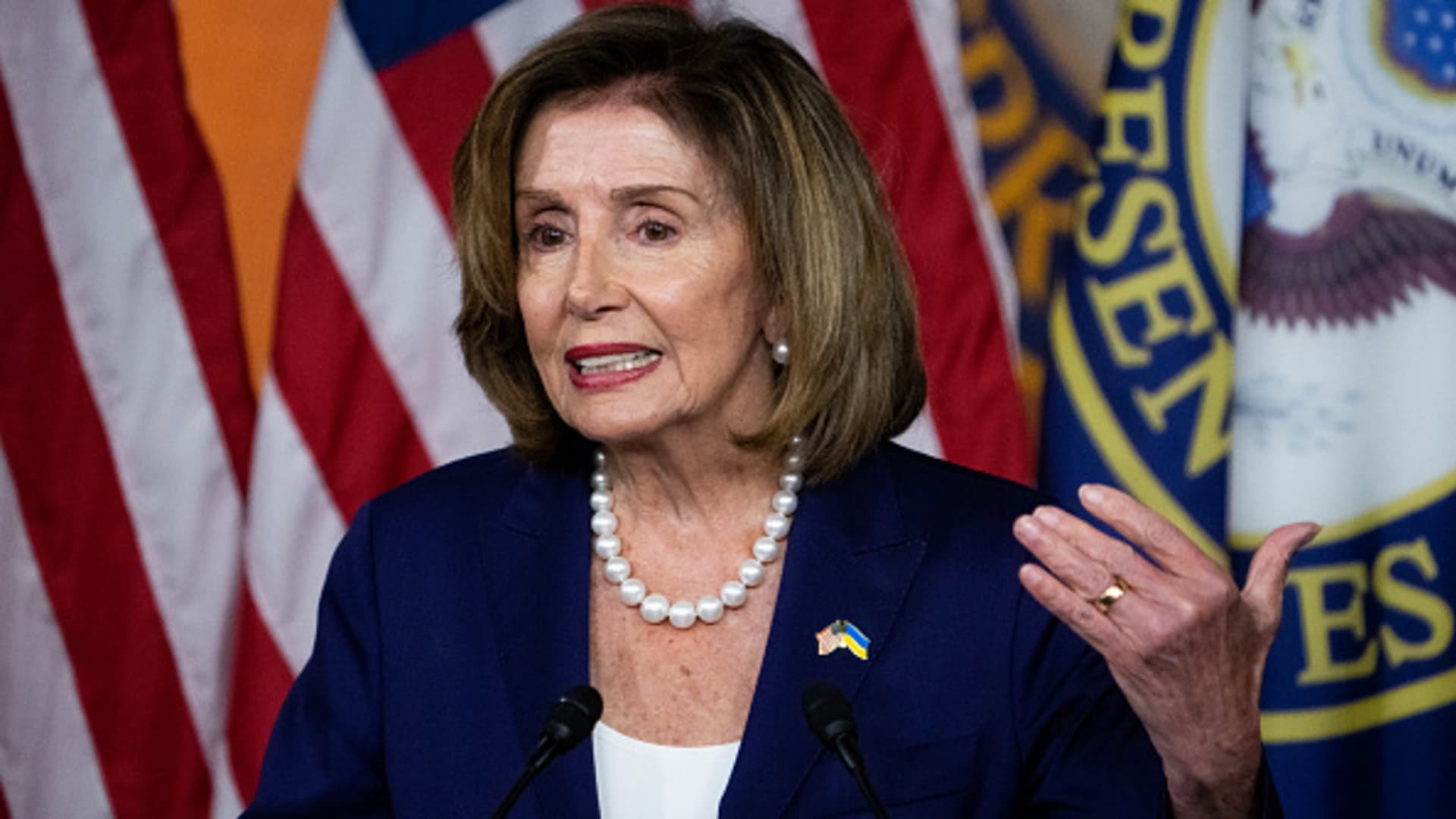
SINGAPORE — Mainland China and Hong Kong markets led losses in Asia on Tuesday as geopolitical tensions rose over U.S. House Speaker Nancy Pelosi’s visit to Taiwan.
The Shanghai Composite lost 2.26% to 3,186.27 and the Shenzhen Component shed 2.37% 12,120.02. At session lows, both indexes were down more than 3%.
Hong Kong’s Hang Seng index fell 2.42% in the final hour of trade, with heavyweights like Alibaba and Meituan falling 2.79% and 2.56% respectively. The Hang Seng Tech index slipped 3.19%.
Local media reports citing unnamed sources said Pelosi would go ahead with her visit to Taiwan, a democratic self-ruled island that China sees as a runaway province.
Pelosi’s visit will significantly raise US-China tensions but is unlikely to produce a Chinese reaction that risks conflict.Eurasia Group analysts
Regarding Pelosi’s trip, Beijing warned that its army would “never sit idly by” and will “uphold China’s sovereignty and territorial integrity,” Foreign Ministry spokesperson Zhao Lijian said at a press conference on Monday.
“Pelosi’s visit will significantly raise US-China tensions but is unlikely to produce a Chinese reaction that risks conflict,” Eurasia Group analysts wrote in a Monday note.
Taiwan Semiconductor Manufacturing Company‘s shares fell 2.38%, compared with a 1.56% loss to 14,747.23 on the wider Taiex index.
The dollar-yen may react to developments, said Saktiandi Supaat, regional head of FX research and strategy at Maybank.
“Geopolitical risk is always a factor that we look at in terms of, in the FX space. But it’s something hard to predict,” he told CNBC’s “Street Signs Asia” on Tuesday.
The Japanese yen, a safe-haven currency, traded at 130.88 per dollar, continuing its strengthening trend from last week.
Elsewhere in Asia, the Nikkei 225 in Japan slipped 1.42% to close at 27,594.73, and the Topix index lost 1.77% to 1,925.49.
In South Korea, the Kospi shed 0.52% to 2,439.62 and the Kosdaq declined 0.4% to 804.34.
Consumer prices in South Korea rose 6.3% in July compared with the same period in 2021, official data showed on Tuesday. That’s in line with expectations and the fastest acceleration in prices since November 1998, Reuters reported.
The Bank of Korea raised rates by 50 basis points in July.
Australia’s S&P/ASX 200 recovered from earlier losses and closed fractionally higher at 6,998.1.
The Reserve Bank of Australia hiked rates by 50 basis points after official data last week showed prices in Australia rose 6.1% in the second quarter compared with a year ago.
The Australian dollar appeared to lose ground after the RBA decision and last stood at $0.6941, falling below the $0.70 level.
MSCI’s broadest index of Asia-Pacific shares outside of Japan declined 1.32%.
Overnight in the U.S., the Dow Jones Industrial Average lost 46.73 points, or 0.14%, to 32,798.40.
The S&P 500 shed 0.28% to 4,118.63 and the Nasdaq Composite lost 0.18% and closed at 12,368.98.
The U.S. dollar index, which tracks the greenback against a basket of its peers, was at 105.467.
Oil futures slipped on Tuesday. U.S. crude shed 0.17% to $93.73 per barrel after settling 4.8% lower in the previous session, and Brent crude lost 0.35% to $99.68 per barrel. The international benchmark settled 3.79% lower in the previous session.




